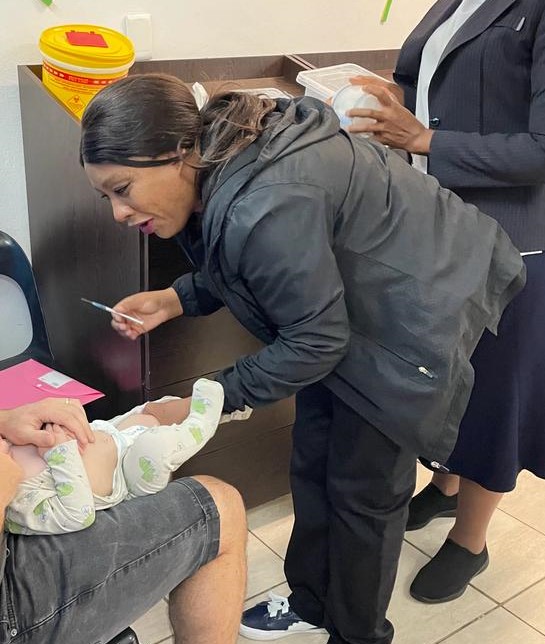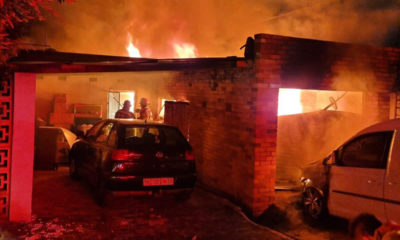
Community

Hatzolah responds to measles with vaccination drive
Hatzolah has confirmed a measles outbreak in a school “in the area” amidst a nationwide outbreak. To date, 441 laboratory-confirmed measles cases have been reported across five provinces, including Gauteng, prompting a nationwide vaccination campaign as well as a Hatzolah booster drive.
Hatzolah said it was unable to comment further as, “the school and relevant departments need to make their announcements”.
Nonetheless, parents are being urged to take the outbreak seriously. In line with a nationwide measles-vaccination campaign that began this week, Hatzolah kicked off its own drive on Wednesday, 8 February. Free boosters for children between the ages of six months and 15 years will be provided at Hatzolah’s pop-up vaccine site at the KosherWorld centre. Vaccination teams will also be dispatched to the community’s schools.
“Hatzolah is collaborating with the health department’s measles vaccine drive based on the National Institute for Communicable Diseases (NICD) advisory for measles boosters,” says Hatzolah’s Yudi Singer, who is spearheading the drive. “This will hopefully help curb the spread of the measles outbreak in the community. The intention of the measles vaccine is to boost immunity. On our first day, we already had many bookings for boosters. Some schools have also already booked days for us to vaccinate children on their premises.”
One of the most contagious viral infections we face, measles can be particularly dangerous for children under the age of five, pregnant mothers, and immunosuppressed individuals, says Johannesburg general practitioner Dr Sheri Fanaroff. “It’s most commonly seen in the five to 14-year age group,” she says. It can, however, affect anyone of any age without immunity to the disease.
An airborne respiratory disease, measles is spread when an infected person coughs or sneezes. It’s so contagious that if one person has it, up to nine out of 10 people around them will also become infected if they aren’t protected, which is why vaccination is vital. Once a person has contracted measles, they are immune to the virus.
“Symptoms that should make you suspect that your child might have measles are a high fever – above 38.5 degrees Celsius – together with a rash, and any signs of a cough, conjunctivitis [red eyes], and a runny nose,” Fanaroff says. “Complications in children include encephalitis [swelling of the brain], ear infections, eye damage, diarrhoea, and pneumonia.” In rare cases, the resulting encephalitis or pneumonia can cause death.
“The NICD recommends that the measles vaccine be administered irrespective of prior childhood vaccination to all children between the age of six months and 15 years old,” says Singer. A booster, even in children who have already received the vaccine, is for the benefit of individuals and the community, says Fanaroff, for two reasons:
First, there’s concern that the vaccines received may not have been effective. “For example,” she says, “the cold chain of vaccines may not have been maintained, rendering the vaccine inactive, or the child may not have mounted an adequate immune response. The extra dose is to close this gap in immunity.”
Second, less than 80% of South Africa’s population is immunised against measles, making us vulnerable to the disease. “We need to achieve 95% vaccine coverage in order to stop the outbreak, a kind of ‘herd immunity’ in which there aren’t enough vulnerable people for the virus to spread to so it dies out.” Therefore, the more people who vaccinate or get boosters, the lower the risk.
Hatzolah welcomes walk-ins at its pop-up site. To make a booking for a specific time and skip the queue, email vaccinations@hatzolah.co.za or follow the link: https://www.hatzolahvaccines.co.za/










